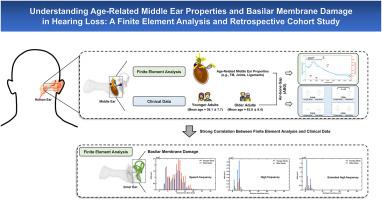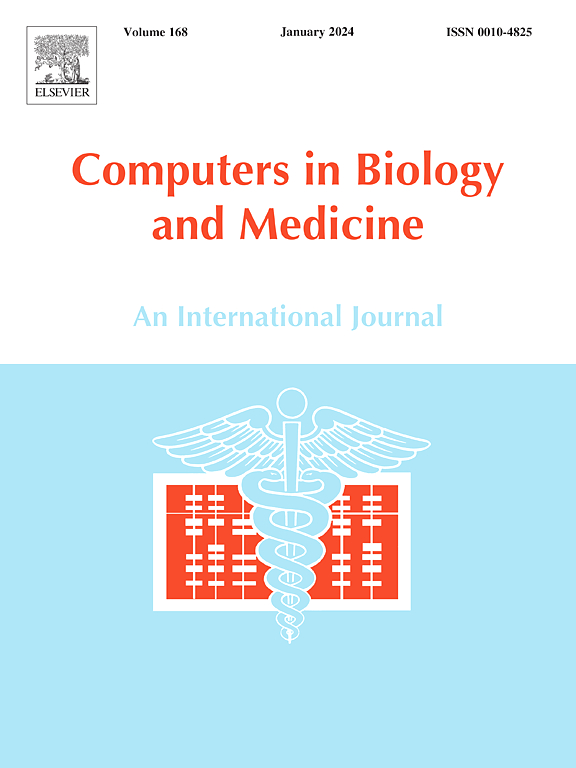Understanding age-related middle ear properties and basilar membrane damage in hearing loss: A finite element analysis and retrospective cohort study
IF 7
2区 医学
Q1 BIOLOGY
引用次数: 0
Abstract
Age-related hearing loss (ARHL) is primarily attributed to inner-ear factors, yet the role of age-related middle ear characteristics remains elusive. Employing a finite element (FE) model, we conducted a comparative analysis with clinical data extracted from a retrospective cohort study involving 90 younger adults (mean age = 38.1 ± 7.7) and 111 older adults (mean age = 63.8 ± 8.4). The clinical dataset encompassed air-bone gap (ABG) measurements obtained through pure-tone audiometry (PTA) at frequencies of 0.5, 1.0, 2.0, and 4.0 kHz. FE results quantified the normalized stapes displacement value of the simulated form of air-bone gap () between the two age groups. The Mann-Whitney U test, with a significance threshold set at P < 0.05, was employed for statistical analysis. Furthermore, the study employs simulated auditory risk unit (ARU) results to evaluate basilar membrane (BM) damage. A significant intergroup discrepancy surfaces at 1.0 kHz ( = 1.0; ABG: P = 0.008), with pronounced BM damage occurring within the speech frequency range (0.5–4.0 kHz) among older adults. The ARU consistently localizes within the 3–18 mm region from the base for both age groups. In conclusion, older adults exhibited significant conductive hearing loss (CHL) at 1.0 kHz but demonstrated a modest enhancement in middle ear sound transmission efficiency at 2.0 kHz. Furthermore, our research indicates that aging exacerbates damage to the BM when exposed to speech frequency excitation exceeding 90 dB sound pressure level (dB SPL).

了解听力损失中与年龄相关的中耳特性和基底膜损伤:有限元分析和回顾性队列研究。
与年龄相关的听力损失(ARHL)主要是由内耳因素造成的,但与年龄相关的中耳特征的作用仍不明确。我们采用有限元(FE)模型,与一项回顾性队列研究中提取的临床数据进行了对比分析,该研究涉及 90 名年轻成年人(平均年龄 = 38.1 ± 7.7)和 111 名老年人(平均年龄 = 63.8 ± 8.4)。临床数据集包括在 0.5、1.0、2.0 和 4.0 kHz 频率下通过纯音测听(PTA)获得的气骨间隙(ABG)测量值。FE 结果量化了两个年龄组之间模拟形式的气骨间隙(ABGSim)的归一化镫骨位移值。曼-惠特尼 U 检验的显著性阈值为 P
本文章由计算机程序翻译,如有差异,请以英文原文为准。
求助全文
约1分钟内获得全文
求助全文
来源期刊

Computers in biology and medicine
工程技术-工程:生物医学
CiteScore
11.70
自引率
10.40%
发文量
1086
审稿时长
74 days
期刊介绍:
Computers in Biology and Medicine is an international forum for sharing groundbreaking advancements in the use of computers in bioscience and medicine. This journal serves as a medium for communicating essential research, instruction, ideas, and information regarding the rapidly evolving field of computer applications in these domains. By encouraging the exchange of knowledge, we aim to facilitate progress and innovation in the utilization of computers in biology and medicine.
 求助内容:
求助内容: 应助结果提醒方式:
应助结果提醒方式:


